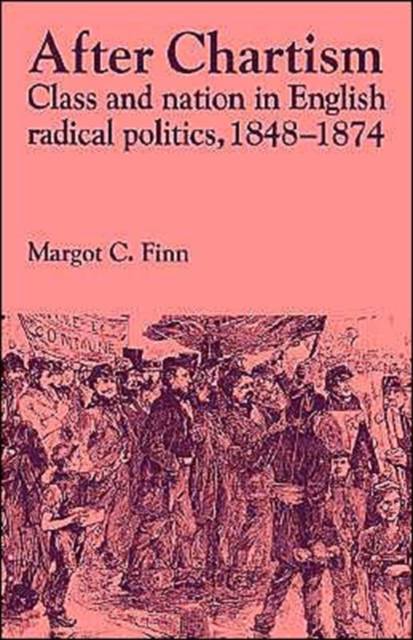
- Afhalen na 1 uur in een winkel met voorraad
- Gratis thuislevering in België vanaf € 30
- Ruim aanbod met 7 miljoen producten
- Afhalen na 1 uur in een winkel met voorraad
- Gratis thuislevering in België vanaf € 30
- Ruim aanbod met 7 miljoen producten
Zoeken
€ 50,45
+ 100 punten
Omschrijving
This book charts the course of working- and middle-class radical politics in England from the continental revolutions of 1848 to the fall of Gladstone's Liberal government in 1874. The author traces the genealogy of English radicalism from its roots in Protestant Dissent and the seventeenth-century revolutions, but also shows how this shared radical tradition was problematized by middle-class radicals' acceptance of classical liberal economics. She traces the lineaments of this divide by contrasting middle- and working-class responses to the continental revolutions of 1848-9, to the Polish and Italian nationalism of the 1860s, and to the Paris Commune in 1871. She argues that these years witnessed not the relentless liberalization of working-class radical protest in England, but rather a significant diminution of middle-class radicals' commitment to liberal economics. This accommodation contributed to the emergence of the 'New Liberalism' of the 1880s, and helped to shape middle- and working-class responses to the early socialist movement.
Specificaties
Betrokkenen
- Auteur(s):
- Uitgeverij:
Inhoud
- Aantal bladzijden:
- 376
- Taal:
- Engels
- Reeks:
Eigenschappen
- Productcode (EAN):
- 9780521525985
- Verschijningsdatum:
- 22/01/2004
- Uitvoering:
- Paperback
- Formaat:
- Trade paperback (VS)
- Afmetingen:
- 140 mm x 216 mm
- Gewicht:
- 476 g

Alleen bij Standaard Boekhandel
+ 100 punten op je klantenkaart van Standaard Boekhandel
Beoordelingen
We publiceren alleen reviews die voldoen aan de voorwaarden voor reviews. Bekijk onze voorwaarden voor reviews.











